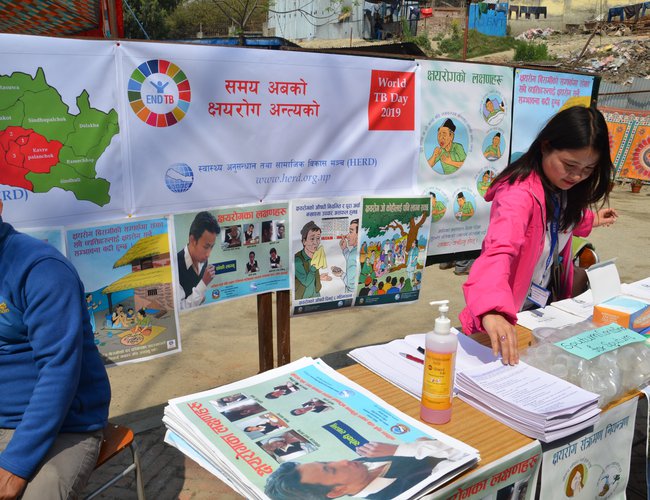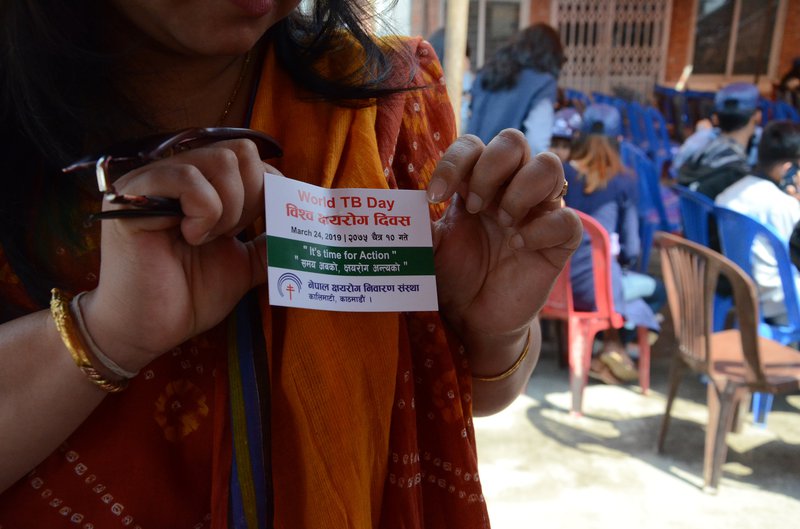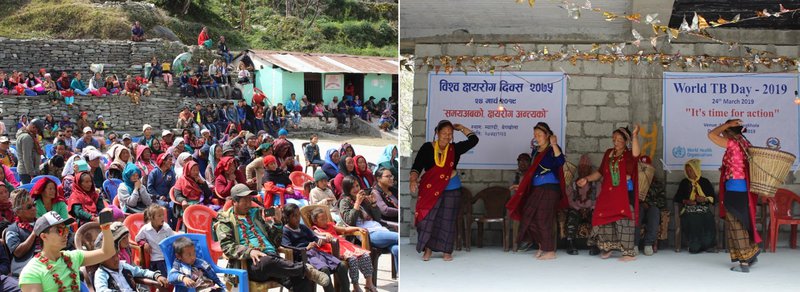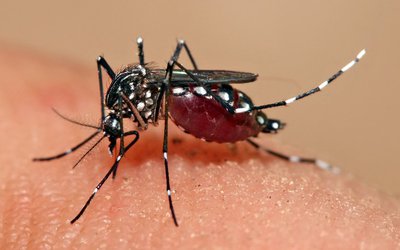
Minister of Health and Population, Upendra Yadav, launched the annual report (2019) on TB, at the premises of National Tuberculosis Program (NTP) On the occasion of World Tuberculosis (TB) Day 2019.
Published by NTP, the report states that tuberculosis remains a major public problem in Nepal and the burden of multidrug-resistant (MDR) TB poses a health threat. However, the burden of MDR TB in Nepal is not as high as the South-east Asian or global burden.
The report states that in 2017/18, more than 32,000 cases were notified and registered at NTP, and some 6,000 annual deaths was caused by TB. According to this data, an estimated 87 people fall ill due to TB, and some 16 die from the disease, every day in Nepal.
Tuberculosis, a contagious airborne disease and one of the world’s deadliest infectious killer, spreads via inhaling respiratory droplets that contain TB bacteria from the coughs or sneezes of an infected person.
Despite TB being a preventable and curable disease, TB remains world’s top infectious killer affecting most economically productive age group which impacts the economy of the country. TB not only makes people sick, but the cost of TB treatment plunges TB affected families in vicious cycle of sickness and poverty. It is known that every USD 1 (NRs. 109) invested to end TB returns USD 43 (NRs. 4,690) plus the multiple benefits of a healthy functioning society. Hence, investment in TB is not just combating TB but makes economic sense.
World TB Day is commemorated each year on March 24 to raise public awareness about the devastating health, social, and economic consequences of TB, and to step up efforts to end the global TB epidemic. The theme of this year’s World TB Day – ‘It’s time’ – highlights,the drive to end TB which has reached a critical phase, both regionallyand globally.
According to a press release, the member states of South East Asia Region issued call for action in March 2017, highlighting the political, technical and strategicinterventions needed to route this disease. In March 2018, in the Delhi End TB Summit, member states unanimously adopted a statement of Action pledging to intensify efforts towards ending TB by or before 2030. In September 2018, at the UN General Assembly’s high-level meeting on ending TB, Member States made vital contributions to the Political Declaration onthe fight against Tuberculosis.
In keeping with these and influence, the Government of Nepal is making all possible efforts in designing effective interventions in TB control such as early case finding approaches, engaging communities and private sectors, and increasing investment in TB control efforts.
During the program at NTP, the Honorable Minister of Health reemphasized Nepal’s political commitment to end TB nationally, and stated, “No one should die because of this preventable disease. We need to increase public awareness, especially in the marginalized community, to reduce social stigma, and so that they get timely treatment and come for checkup. We need to develop health centers at the local and provincial level with better diagnostic capabilities.”

The country, in collaboration with World Health Organization (WHO)- Nepal, and other partners is also going one step ahead to understand the true burden of TB in the country through a TB prevalence survey which started in 2018 in which WHO ensures the survey quality. The average participation rate for the survey so far is nearly 90.83%, which is a major success especially considering the geographical and logistical challenges posed by highly sophisticated nature of the survey. Internationally, participation rate of over 85% is often considered as the benchmark for good participation rate.
National TB program with support from WHO had also developed several standards and newer guidance embracing innovations such as newer diagnostics and more effective treatment regimens for TB following latest WHO recommendations.
Stakeholders reiterated that ending TB requires concerted action by all sectors of our society to provide the right services, support and a safe environment in the right place, at the right time. Everyone is accountable and has a role to play in ending TB, working towards achieving sustainable development goals, and truly leaving no on behind.
A media statement from the Regional Director of WHO South-East Asia Region, Dr. Poonam Khetrapal Singh, stated: “On World TB Day, we must reflect on the momentum already developed and the accomplishments we can achieve. It’s time to seize the moment and do what’s needed to End TB”.
This year, World TB Day is also being observed at all the provinces and at the local levels focusing on advocacy for local leaders to increase investment in TB at the local level and to create awareness at the community level about TB. Several advocacy activities supported by WHO in collaboration with National TB Program and community group, JANTRA are also being carried out at the TB prevalence survey sites at Begkhola (Myagdi),Jhapa (Mechinagar municipality),and Jajarkot District (Majhkot VDC).

- Nepal-UK Tech Forum Held
- Jul 06, 2025
- Hari Sayani or Devshayani Ekadashi 2025: Day Of Tulsi Plantation
- Jul 06, 2025
- Siddhababa Tunnel Makes A Major Milestone
- Jul 06, 2025
- Weather Forecast: Generally Cloudy Across The Country With Heavy Rain At One Or Two Places Gandaki, Bagmati and Koshi Provinces
- Jul 06, 2025
- India’s External Affairs Ministry’s Senior Officials Says Indo-Nepal relations are ever expanding
- Jul 05, 2025














